If you're looking for a slow summer adventure why not take to the water for a wild camping by canoe journey? Here's our guide on how to go wild camping by canoe in the UK, including the skills needed and best places to camp.
What's the difference between a canoe and kayak?
While the British tend to call any paddle-craft a canoe, the term should really apply only to an open boat. The kayak, first designed for a single hunter, is enclosed almost completely by a deck. Both can carry camping kit – a canoe just holds a lot more.
The other difference is the paddles – a canoe paddle blade is typically on one end, while the blades of a kayak paddle is at both ends.
How to get started: skills needed and basic equipment
Tempted to join in? For those with their own camping gear, costs for a new canoe start at around £800. Not exactly cheap, but reasonable when compared with other ways to take to the water.
Not everyone has the camping kit, either, but no need to despair. A growing number of hire outlets will not only provide you with a canoe, but everything else needed for your expedition – even a tent. Many will also offer shuttle services and other helpful support.
Then there are the necessary boat-handling skills. These are vital. Any outdoor activity comes with its risks but these increase as soon as you add water to the mix. Mind you, with the growing popularity of the canoe, finding someone experienced to teach these skills shouldn’t be hard.
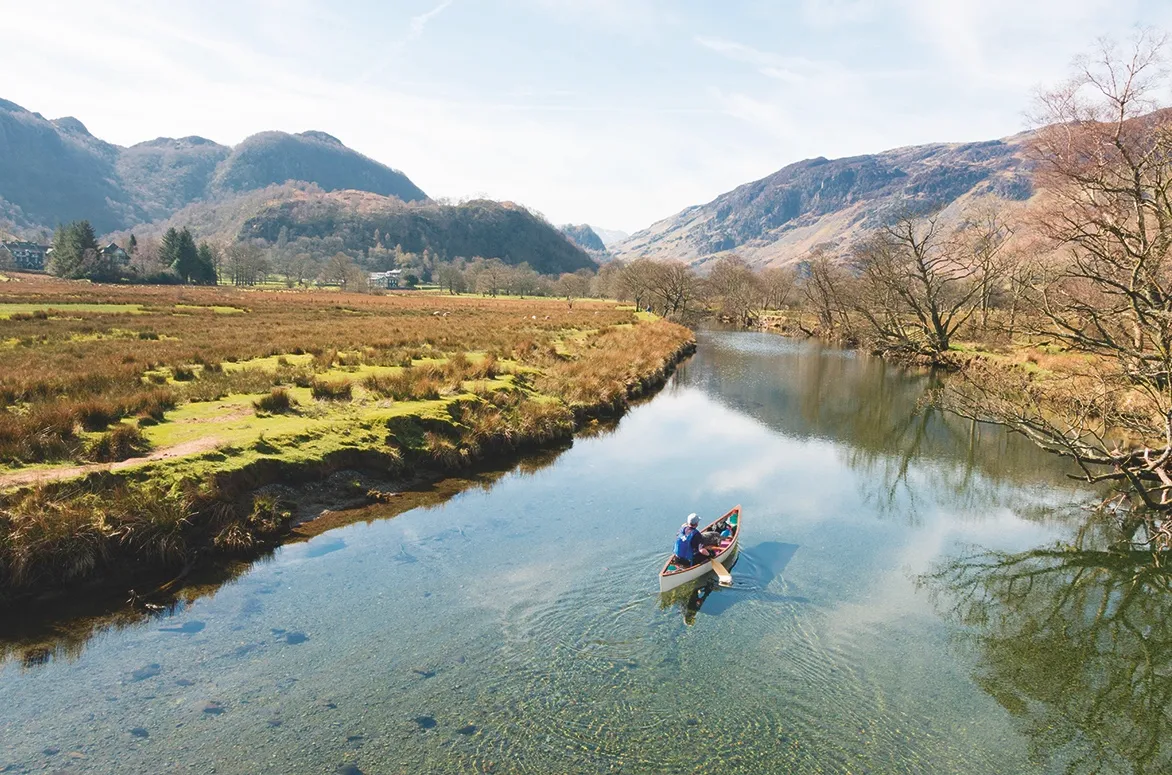
Alternatively, and it is a good alternative, a growing number of companies provide the whole caboodle. These are very useful if you want to see whether canoe camping is really for you. They can supply kit, essential basic training, even a prepared itinerary and route. Importantly, they also provide competent guides to accompany you on your journey. All you have to do is turn up, listen carefully to the pre-launch talks, buckle up your PFD (personal flotation device) and climb in.
Canoe camping is a great activity for all the family, including children, and these guided trips are an excellent way to take youngsters on their first voyage.
Legal issues around canoe camping: 2003 Land Reform Act
For anyone planning a canoe camping holiday, the 2003 Land Reform Act offers some of the most mature and invigorating access legislation in the world.
It’s important to check you can legally canoe and camp, but as long as you respect the environment and don’t interfere with those working on the land, you can go just about where you like, do pretty much what you want and put a tent up almost anywhere that takes your fancy.
Best places to canoe and wild camp in the UK
1
The River Wye
Very beautiful, with a longheld canoe-camping tradition. Campsites line the river, giving you plenty of options.
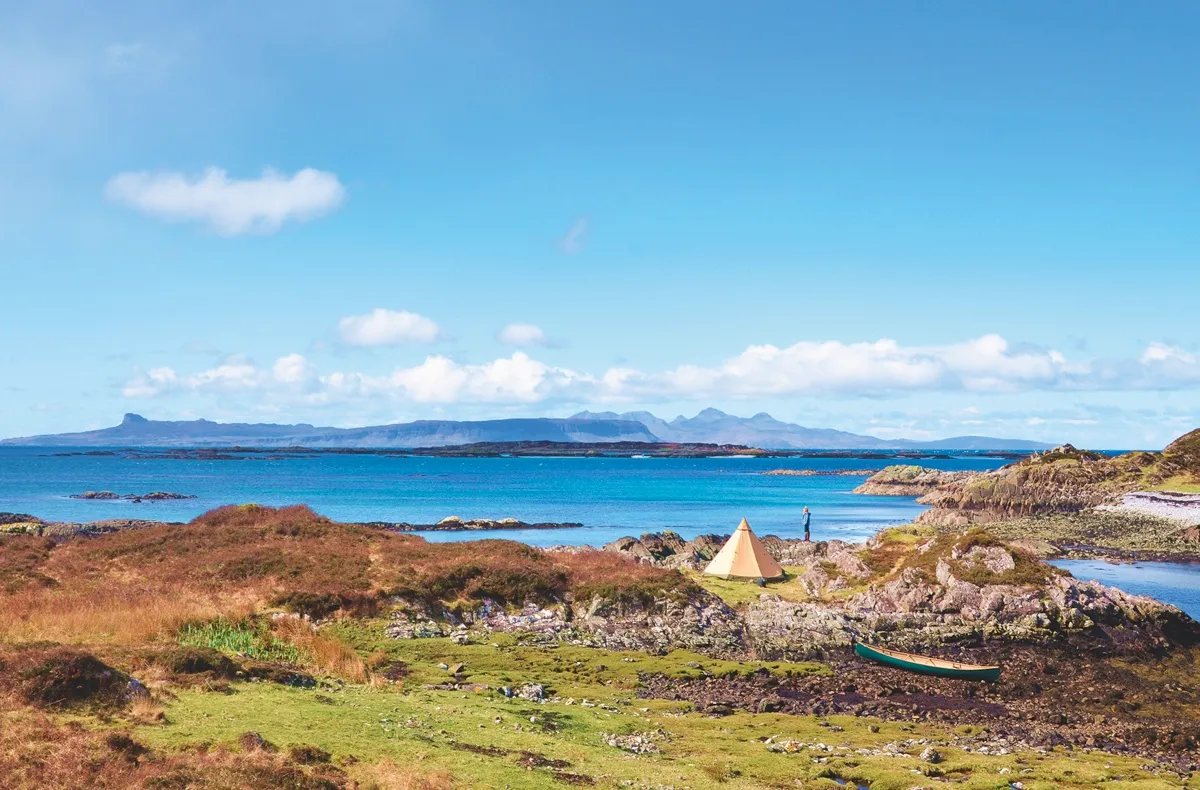
2
The Thames
The Thames has a similar canoe camping tradition to the Wye. See: campsites.co.uk/search/campsites-on-the-river-thames
3
Norfolk Broads
This is classic boat and tent country. See: norfolkbroads.com/stay/camp-sites-50/
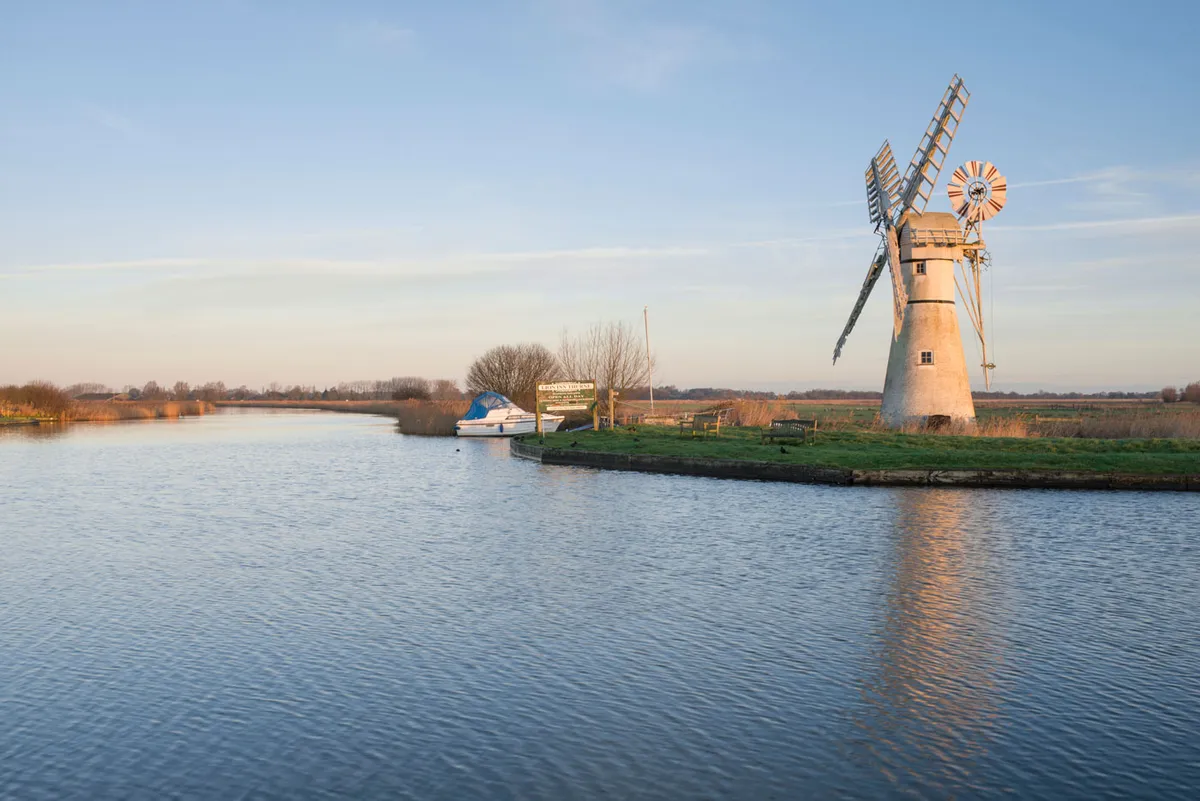
4
Lake District
Here you’re spoilt for choice. Check out Cool Camping for great camping ideas.
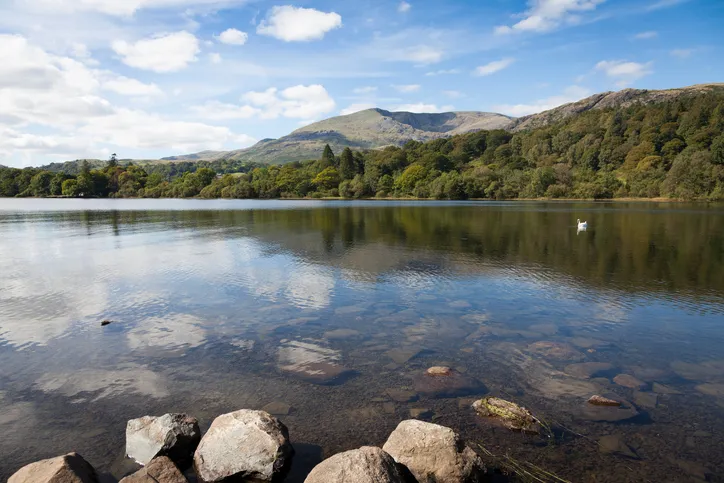
A beginner’s guide to wild camping
One of the great joys of wild camping is the chance to sleep under the stars in beautiful rural locations.
Our essential beginner's guide shares expert tips on how to camp safely, kit to take and the best places to wild camp legally in Britain.
Where to learn to canoe
Whether as a complete beginner, or to hone your existing skills, the following organisations can help you get in touch with your inner canoeist, hiring boats and providing tuition and guided tours:
The Canoe Man, Wroxham, Norfolk Broads. (Guided canoe camping also available.)
Windermere Canoe and Kayak, Bowness-on-Windermere
ProAdventure, Llangollen (annual canoe camping expeditions also available)
Beyond Adventure, Aberfeldy, Scotland (guided canoe camping also available)
Tollymore, Bryansford, Northern Ireland.
The joy of the journey: our writer Tim Gent on the simple pleasure of canoe camping
As the small rock headland falls astern, our goal is revealed – a curve of yellow sand lit by a low evening sun. Paddles angled and dipped in unison, we swing our canoe into the bay. It takes no more than a sweeping glance. This will make a great campsite.
Beyond a stand of wind-stunted oak, grass fringes the beach, the level turf cropped short by deer. At the far edge of this wilderness lawn, partly hidden by a shingle spit, a stream tumbles noisily into the bay, elegant silver birch lining its far bank. We move in, broadside to the shore, until the hull crunches softly against a wave-washed line of broken shell, and we step out of the canoe.
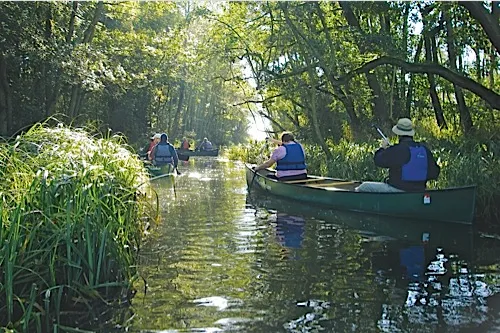
It’s been a beautiful day, but there isn’t much of it left. A heavy sun is already dropping fast towards a line of jagged purple mountains.
We unload the canoe, and I search for kindling while Susannah heads off towards the stream. By the time she returns, a full kettle in one hand, a length of polished driftwood dragged behind in the other, the fire is lit. Dried bracken stems and the wispiest of silver birch twigs crackle merrily in a shallow scoop, dug in the shingle at the top of the beach.
Before long, the tent is up and mugs of tea sit steaming beside us, propped upright in the sand. Out in the bay an otter scrunches happily on some shellfish delicacy, diving unconcerned to find another as Susannah and I sit and watch. We have a new home.
Canoe trips abroad
In search of other temporary abodes, our canoe camping trips have taken us from all corners of Britain to Arctic Scandinavia and the Mediterranean coast, but it’s fair to say that canoe-camping is a North American invention. Across the vast boreal forest of what was to become Canada and the USA, the only way to travel easily in the past was by canoe, along the bright strings of rivers and lakes. European settlers soon abandoned their heavy wooden boats for these lightweight craft. Even after the locomotive took over the bulk of trade haulage, trappers, prospectors and surveyors continued to use the versatile canoe to carry them and their camping gear into the wild. And when this need died away, it was adventurous clerks, teachers, graphic artists and shopkeepers who stepped in, setting out during their vacations with a tent, provisions, frying pan and axe, letting their canoe take the strain. We can do the same here.
Breaking free from the busy highway, even the well-trod footpath, the familiar certainties of dry land can be exchanged for the movement and freshness of river or lake. And as light begins to falter, fulfilled by a day of exploration and discovery, what better than to extend this wonderful experience, unloading that canoe for a night on the shore.
I suspect Susannah and I enjoy this bit most. Despite the pleasure of the journey, its many new sights and the astonishing opportunities provided by these clean, silent craft to encounter seals, dolphins, deer, dunlin and eagles, it is probably these late-afternoon arrivals that most appeal. Here, far from the hurly-burly of modern life, we can build our transient home and re-engage with somewhere wild.
Sometimes the shelter we make is simple – no more than a waterproof sheet stretched for the night over the upturned canoe. But as it’s so easy, we usually pitch our tent. Where appropriate, we collect driftwood or windfall timber, light a fire and create a simple outdoor kitchen. We share most jobs, but Susannah enjoys developing new ways to provide food as good, sometimes better, than we eat at home. I can contribute in perhaps predictable fashion, tending to the fire. It’s all very good for the soul.
About the author
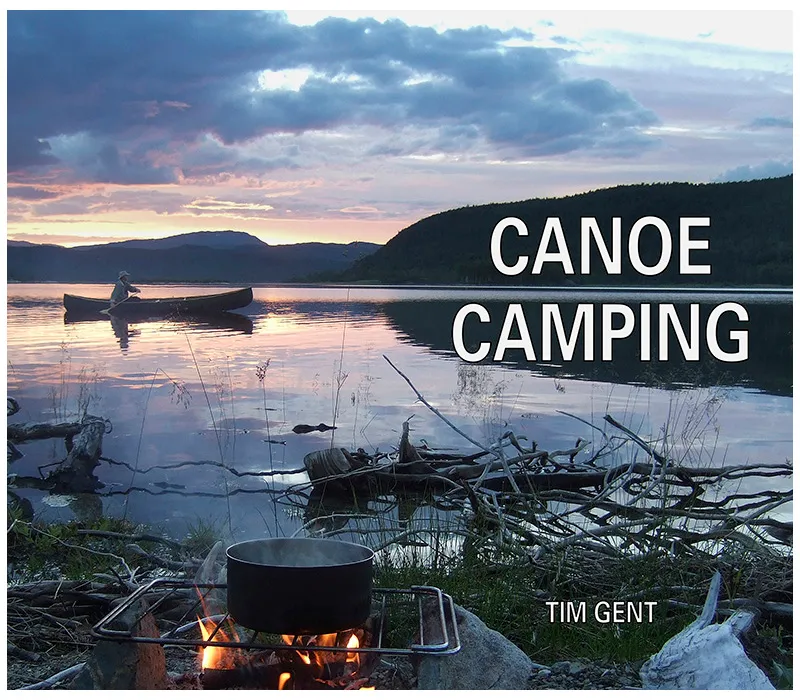
Tim Gent was brought up in the country, spending almost every free hour as a youngster on a farm. As a field archaeologist and freelance outdoor writer, he has enjoyed much of his adult life outside, too. Find out more about Tim and his life of camping and canoeing, visit www.timgentoutdoors.com